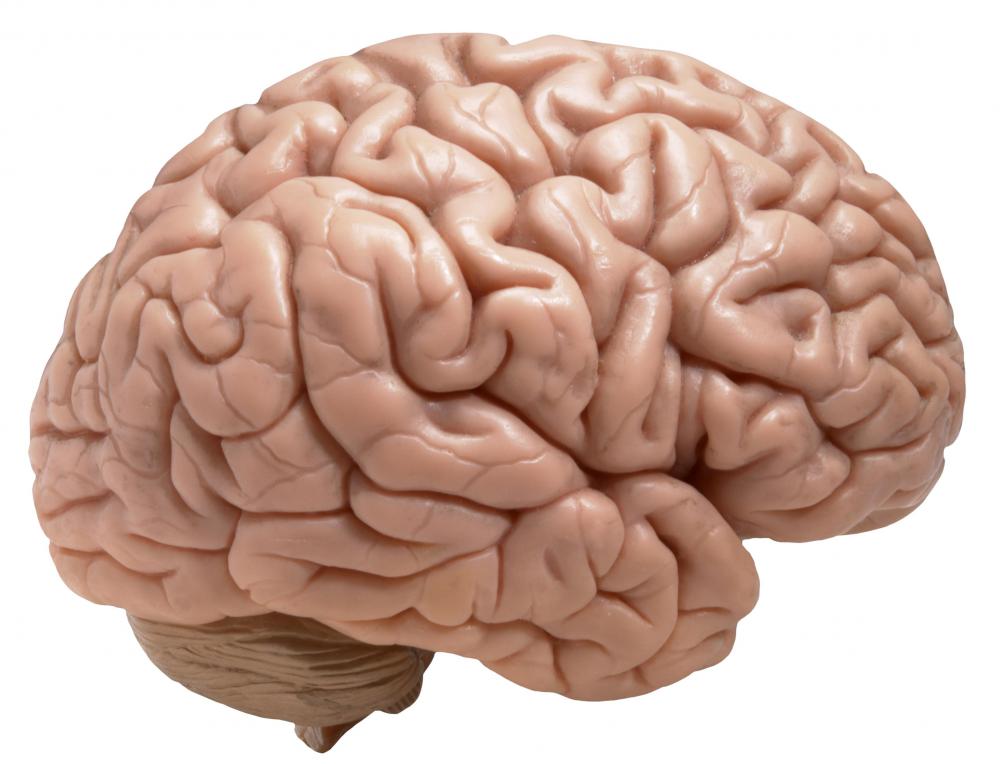At WiseGEEK, we're committed to delivering accurate, trustworthy information. Our expert-authored content is rigorously fact-checked and sourced from credible authorities. Discover how we uphold the highest standards in providing you with reliable knowledge.
What are the Different Types of Central Nervous System Diseases?
Consisting of the brain and the spinal cord, the central nervous system functions as the body’s primary control center, the site at which all neural messages are processed. Occasionally, this system can become diseased, resulting in impaired neural activity. There are many central nervous system diseases, each with a different cause and combination of symptoms. Among these central nervous system diseases are Alzheimer’s, multiple sclerosis, Parkinson’s disease, Tourette syndrome, and meningitis.
Of all central nervous system diseases, Alzheimer’s is perhaps the most familiar, affecting approximately 10 percent of all individuals over age 65. Although the exact cause of this condition remains unknown, researchers have determined that it affects parts of the brain’s nerves, leading them to become tangled or caught in clusters. This phenomenon leads to a range of cognitive and behavioral changes which can radically alter the personality, judgment, and actions of an affected individual. Unfortunately, there is no known cure for Alzheimer’s, although some of its symptoms can be managed with medication.

Multiple sclerosis is a disease which affects the central nervous system’s myelin, the substance which sheaths the part of the neuron known as the axon, speeding neural messages. Damage to the myelin causes delays in the transmission of neural messages, which can result in impaired vision, speech, and movement. The causes of multiple sclerosis are not yet understood, and no cure has been established.

Parkinson’s disease is a condition which can cause symptoms such as shakiness, muscle stiffness, speech impairment, balancing difficulties, and dementia. As with many other central nervous system diseases, researchers are not yet certain what causes Parkinson’s disease, but it is believed to be related to the gradual death of the brain cells which produce the chemical dopamine. There is no known cure for Parkinson’s, but many of its symptoms can be treated with medication.

Tourette syndrome is a disease of the central nervous system which causes tics in affected persons. These tics may include such sounds or movements as unexpected vocalizations, repetitive blinking, or sudden jerking of the limbs or facial muscles. Many researchers believe that Tourette syndrome results from the impairment of certain brain chemicals which normally aid nerve function. No cure has been established for the condition, although some tics can be managed with medication.

Finally, meningitis is a disease of the central nervous system in which the membranes of the brain become swollen. Meningitis is usually caused by a viral or bacterial infection, both of which are contagious. Symptoms of this condition can include fever, stiffness of the neck, nausea, sensitivity to light, disorientation, and fatigue. Bacterial meningitis can be fatal, but if diagnosed early, can often be successfully treated with antibiotics. While there is no specific treatment for viral meningitis, most infected persons recover fully from the condition.
AS FEATURED ON:
AS FEATURED ON:
















Discuss this Article
Post your comments